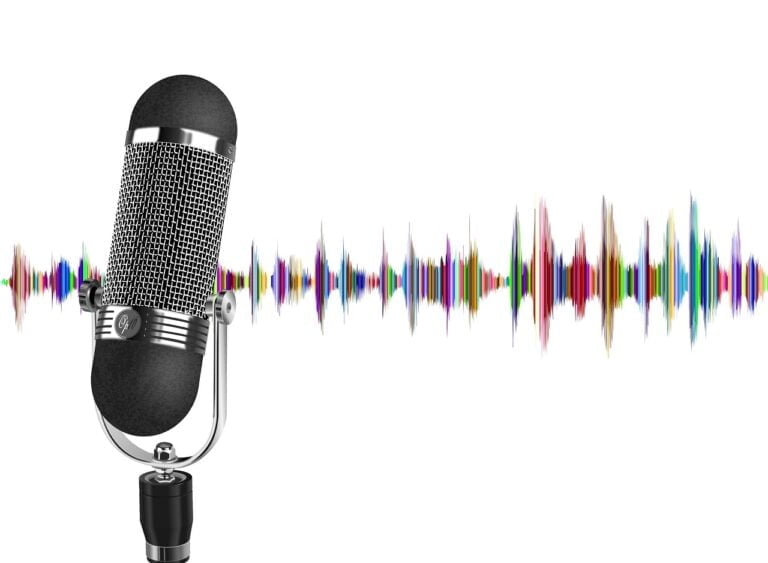Podcast Transcription: Accessibility and SEO Benefits
Imagine the impact of reaching a broader audience and improving your podcast’s search engine ranking with a simple yet powerful strategy. The benefits of accessibility and SEO optimization through transcription go beyond what meets the ear. Let’s explore how this practice can revolutionize the way your podcast connects with listeners and stands out in the digital landscape.
We are supported by our audience. When you purchase through links on our site, we may earn an affiliate commission, at no extra cost for you. Learn more.
Importance of Podcast Transcription
Enhancing podcast accessibility through transcription is a key move that boosts audience engagement and SEO performance. The importance of podcast transcription cannot be overstated. By providing transcriptions, podcasts become accessible to a wider audience, including the deaf and hard-of-hearing community, non-native English speakers, and auditory learners. This commitment to inclusivity showcases a dedication to making content available to all, regardless of their background or abilities.
Additionally, transcriptions offer significant SEO benefits. They provide indexable content for search engines, allowing for targeted keywords that can improve rankings and increase on-page engagement. Searchable content through transcripts enhances the user experience by making it easier to find and navigate specific parts of an episode. This improved user experience can lead to expanded potential audience reach as more individuals can discover and engage with the podcast.
Integrating podcast transcription with SEO optimization further amplifies these benefits. It not only boosts visibility in search engine results but also drives organic traffic to podcast episodes. Ultimately, podcast transcription is a crucial tool for enhancing accessibility, improving SEO performance, and maximizing the overall impact and reach of a podcast.
Accessibility Advantages
Podcast transcription not only enhances accessibility for diverse audiences but also plays a pivotal role in improving user engagement and search engine visibility. Here are four key advantages of incorporating transcripts into podcasts:
- Inclusivity: By providing transcripts, podcast creators guarantee that individuals who are deaf or hard of hearing can fully engage with the content. This commitment to accessibility demonstrates a dedication to reaching all potential listeners, making the podcast more welcoming and inclusive.
- Understanding for Non-Native English Speakers: Transcripts benefit non-native English speakers by providing a written version of the spoken content. This allows those who may struggle with the auditory aspects of the language to follow along more easily, expanding the reach of the podcast to a broader international audience.
- Catering to Auditory Learners: Auditory learners, who thrive on consuming information through hearing, can benefit greatly from having a written form of the podcast available. This group of individuals learns best through reading and listening simultaneously, making transcripts a valuable resource for enhancing their learning experience.
- Improving Accessibility Overall: Making podcast content available in written form not only benefits specific groups but also enhances overall accessibility. Whether it’s for individuals with different learning preferences or those looking to revisit specific information, transcripts enhance the accessibility and usability of the podcast for all listeners.
SEO Benefits
Maximizing the potential of podcast content through transcription offers a strategic advantage in improving online visibility and search engine rankings. By transcribing podcasts, you are basically providing search engines with indexable text content that can greatly boost your SEO efforts. Search engines rely on text to understand and rank content, so having transcripts of your podcast episodes allows them to crawl and index your content more effectively.
Incorporating targeted keywords into your podcast transcripts is key to enhancing discoverability. By strategically including relevant keywords in your transcripts, you can attract a larger audience and increase the likelihood of your podcast being discovered through search engines. This not only helps in improving your search engine rankings but also widens your reach to new listeners who are actively searching for content related to your podcast topics.
Furthermore, podcast transcripts play an important role in improving content visibility across various platforms. By making your podcast episodes more accessible through transcripts, you can cater to a broader audience and enhance your podcast’s exposure. This accessibility not only improves user experience but also contributes to your overall SEO strategy by making your content more searchable and engaging to a wider audience.
Transcription Methods
Utilizing a combination of manual and automated transcription methods optimizes the efficiency and accuracy of converting podcast content into text form. When considering transcription methods, here are key points to keep in mind:
- Manual Transcription by Human Experts: Opting for manual transcription guarantees meticulous attention to detail, capturing nuances and context accurately. Human experts excel at delivering high-quality transcripts that resonate with the original podcast content.
- Automated Transcription Using AI Technology: Automated transcription offers speed and cost-effectiveness. AI technology enables swift turnaround times, making it an efficient solution for podcasters looking to transcribe large volumes of content quickly.
- Speech Recognition Technology: Transcription tools leverage advanced speech recognition technology to seamlessly convert audio files into written text. This technology plays a crucial role in both manual and automated transcription methods, enhancing accuracy and efficiency.
- Choosing the Right Method: Selecting the appropriate transcription method depends on factors like budget considerations, desired accuracy levels, and the urgency of turnaround times. By weighing these factors, podcasters can determine the most suitable transcription approach that aligns with their specific needs and goals.
Creative Content Repurposing
To enhance audience engagement and boost online visibility, repurposing podcast transcripts creatively into various formats offers a strategic approach for content marketing success. Converting these transcripts into blog posts not only increases website traffic but also encourages deeper engagement with the material. By sharing podcast snippets derived from transcripts on social media platforms, you can improve online visibility and draw in a wider audience. Additionally, transforming podcast transcripts into e-books or guides provides valuable resources that can help retain and attract new listeners.
Collaborating with bloggers to repurpose podcast transcripts is another effective strategy that can expand your reach and foster valuable partnerships. Adapting podcast content into different formats through transcripts guarantees that your communication strategies are versatile and impactful. This creative content repurposing not only adds depth to your original podcast but also allows you to cater to different audience preferences. By repurposing transcripts in creative ways, you can maximize the SEO benefits of your content and establish a stronger online presence. Embracing various content formats through the repurposing of podcast transcripts is a powerful way to make your material more accessible and engaging across different platforms.







